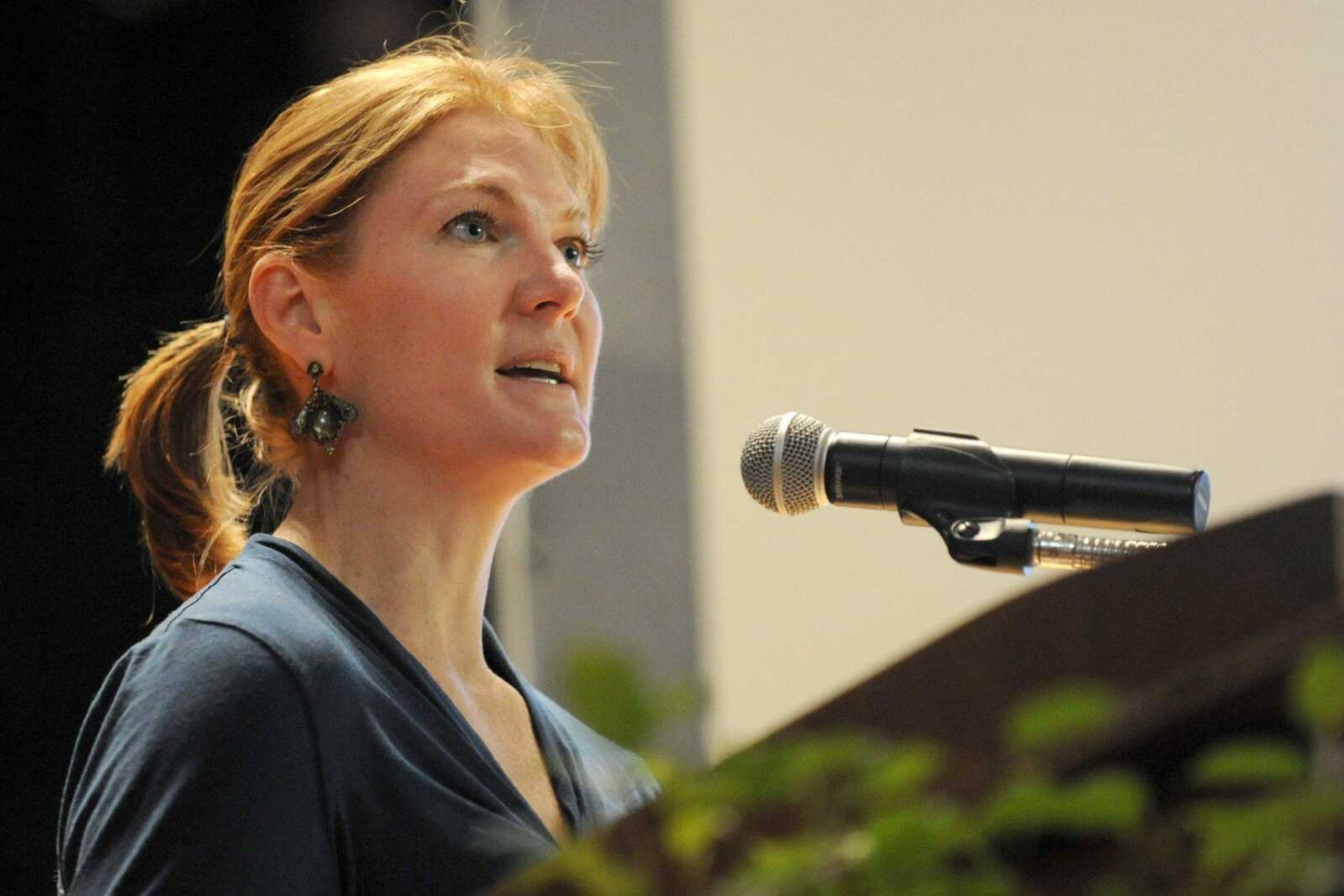Monsanto tells its side of the story at Southeast forum
Dr. Sven Svenson said he realized some students wouldn't give a giant in the commercial agrochemical industry a chance to tell their side of the story about honeybees, but the professor of agribusiness didn't hesitate in organizing Friday's forum for representatives of Monsanto on the Southeast Missouri State University...
Dr. Sven Svenson said he realized some students wouldn't give a giant in the commercial agrochemical industry a chance to tell their side of the story about honeybees, but the professor of agribusiness didn't hesitate in organizing Friday's forum for representatives of Monsanto on the Southeast Missouri State University.
"I think any information we can get directly from people involved is going to help students," Svenson said. "We put this together for that purpose."
"The Future of the American Food Chain: Healthy Plants = Healthy Planet," a three-part presentation and question-and-answer session hosted by the Southeast Horticulture Club, featured Monsanto employees who work in the law and policy, commercial research and scientific development areas of the St. Louis-based agri-giant.
A focus of the event, held inside Academic Hall Auditorium on the final day of fall semester classes, was the effect the honeybee population has on the world's food supply.
Chemicals sold by companies such as Monsanto are often a target of scientists who claim some of the substances adversely affect honeybees that pollinate essential crops. Monsanto's research on the subject primarily attributes a drop in bee populations to parasites and viruses.
"Our students are interested in this because what the honeybees do directly impacts what we do in growing horticulture," Svenson said. "We also get our calories from corn and soybeans and rice and wheat, but antioxidants and vitamins and minerals we need come from the side of agriculture with foods like blueberries and tomatoes. A third of our food supply would disappear if the bees disappear. So there is a fear and concern about that."
Jerry Hayes, who leads the Monsanto-run bee health company BeeLogics, is a former section chief for the Florida Department of Agriculture and worked in the honeybee industry for more than 35 years.
Hayes said the reason he joined Monsanto is because of the resources the company has to help honeybees and that perceptions the company is out to hurt anyone are unfounded.
The "biggest nemesis in honeybee health," Hayes said, is a parasite, the varroa mite, which he said can't be well controlled.
"I can't tell you what the future looks like, but I can tell you that Monsanto is working hard on nonchemical, non-GM ways of controlling varroa mite," Hayes said. "That's why I am there. Certainly there are a lot of questions about [chemicals in pesticides] you may have heard about -- nutrition, other parasites and diseases and how beekeepers fight it -- but the important thing is that we are working together with many, many other people in the industry, because when the honeybee population falls, your nutrition falls, the diversity of food goes down, and all these things are interrelated and interacting."
Annual mortality in honeybee colonies, according to U.S. Department of Agriculture reports, has averaged between 20 percent and 30 percent each year since 2006, which closely compares to a previous eight-year period. Many agriculture experts and scientific studies say the rate bees are dying poses a serious threat to the food supply.
Other Monsanto representatives in Friday's forum sessions spoke on genetic modification of plants versus conventional breeding, technologies in the development of herbicides and other products and career opportunities.
eragan@semissourian.com
388-3632
Pertinent address:
1 University Plaza, Cape Girardeau, Mo.
Connect with the Southeast Missourian Newsroom:
For corrections to this story or other insights for the editor, click here. To submit a letter to the editor, click here. To learn about the Southeast Missourian’s AI Policy, click here.








